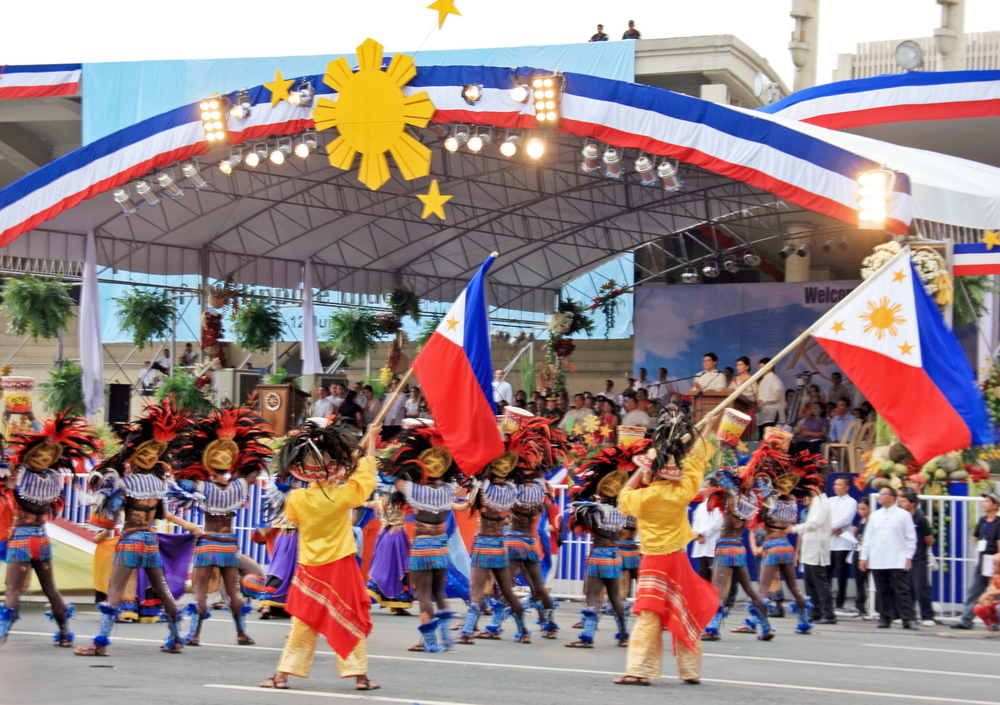
On June 12, the Philippines celebrates its 117th year of independence. President Benigno Aquino III will then head a parade with the police and military, followed by the raising of the national flag, the 21-gun salute and the President’s speech. Several other parades will also be held nationwide with participating government officials, employees and students. To many Filipinos, they may spend the day with their families in parks and malls as business establishments, offices and schools are closed. To Filipino communities abroad, they will also conduct their annual parades, programs and activities. Truly, it will be a day of great commemoration.
But tracing back to our history, it is not really on this day that the country has been completely set free from colonization.
Background
After the declaration of independence on June 12, 1898, the Philippines had not been completely freed from a colonizing power. The country’s full sovereignty over its own was only granted and recognized on July 4, 1946, when the United States of America had surrendered the entire archipelago. Late President Diosdado Macapagal, however, declared June 12 as the day of annual observance of the country’s independence. Hence, today, we celebrate the Philippine Independence on June 12, also called the “Araw ng Kasarinlan” or “Araw ng Kalaayan.”
And so, what happened then that made Filipinos commemorate independence on that day? For the first time in years under foreign rule, our countrymen decided to fight for freedom and demanded for an independent nation. This, among other reasons, is why we celebrate.
Remembering the sacrifices of our heroes
The Independence Day reminds us of the realization of a dream long desired by Filipinos. It is during this day that the entire country remembers the courage, struggles and sacrifices of our noble ancestors. It is a day of memorial of the revolution that paved the way to the birth of our nation. The bravery of our fellowmen and determination to fight a force much greater than them is a deed we can forever be proud of. The strength of our fellowmen to not only fight colonizers but also their own fears is a move we will forever be grateful for.
Instilling nationalism to present and future generations
The heroic acts of our forefathers against oppression remind the present and future generation of the nationalism, commitment, and devotion of the Filipinos towards the Philippines. But with the apparent problems and critical issues our country now faces, our undying love and effort to our country has been fading. And, together with these is the surge of globalization. Sadly, several modern Filipinos do not think and act like Filipinos. They tend to submerge themselves into the culture of other races – forgetting their roots, turning away to unity. Some of our neighboring countries even regard to us as the only Asians who are not Asians. If Andres Bonifacio, is alive today, what would he say? Perhaps, he might think our hard-earned independence, also fought by his fellow katipuneros, is wasted by an ungrateful generation. But the ideology of freedom and democracy is not yet dead. What unified our countrymen can still bring forth unity to us. What inspired our countrymen can still inspire us to be better as a nation. Their fight is our fight!
Appreciating sovereignty
Lastly, during this day, we get to appreciate the endowment of sovereignty. Since attaining our freedom some hundred years ago, Filipinos nowadays may tend to take independence for granted. We may tend to forget the colonization and oppression our countrymen had long despised and endured. And yet again, with globalization, nationalism seems to blur out. Although it is unlikely for a foreign nation to colonize our country at present, we should not forget that losing sovereignty means losing all our rights and following a foreign ruler whose only concern are his gains. Let us not forget that our ancestors have suffered mutilation, maltreatment and gruesome death punishments under the hands of a foreign ruler. With our freedom to speak, express, choose, love, and act today without fear– we owe them all to our countrymen who have fought to free us all.
Creating awareness of our culture and tradition
Aside from commemorating our hard-earned freedom, Filipinos also take this day as an opportunity to rekindle our roots and heritage. The culture and tradition that characterize our people is central to the country’s meaningful development, in the pursuit of national identity and unity. And on the day we celebrate our freedom, let us also promote, protect and develop our culture and traditions. This is not only limited to the arts and practices, but also to our modes of life, values, systems, traditions and beliefs. These are all parts of every Filipino.
Truly, we have many more reasons to celebrate. And as we see Philippine flags displayed in streets and buildings, may we never forget the reason of it all. May the holiday be enjoyed by all Filipinos around the globe as we commemorate the day with befitting rites and festivities. Long Live Philippine Independence!